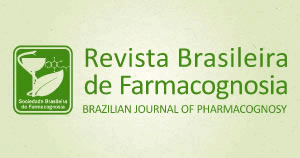ABSTRACT
Plants are considered among the main sources of biologically active chemicals. The species Solidago chilensis Meyen, Asteraceae, is native to the southern parts of South America, where the aerial parts of the plant are commonly used for the treatment of inflammatory conditions. However, the effects of S. chilensis on human cancer cells remain to be elucidated. In this study, we evaluated the antiproliferative effects of the hydroalcoholic and dichloromethane extracts of S. chilensis, as well as their chemical constituents quercitrin and solidagenone against the five human tumor cell lines in vitro. The dichloromethane extract showed a promisor antiproliferative effects in vitro, especially against glioma cell line. Besides, the hydroalcoholic extract and quercitrin were inactive. The diterpene solidagenone showed highly potent antiproliferative effects against breast (MCF-7), kidney (786-0), and prostate cancer (PC-3) cells (total growth inhibition: TGI < 6.25 µg/ml). Solidagenone meets the theoretical physico-chemical criteria for bioavailability of drugs, according to the "Rule of Five" and, by theorical studies, the observed biological effects were probably related to the interaction of the molecule with nuclear receptors and as an enzymatic inhibitor. This study contributes to chemical study and to the identification of antiproliferative molecules in S. chilensis.
Keywords:
Medicinal plants; Antiproliferative; Phytochemical; Diterpene; MCF-7 cell line; Rule of five





